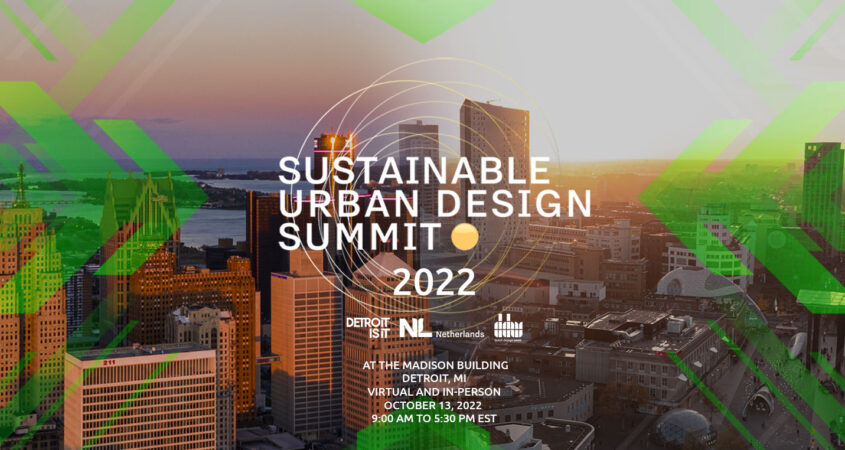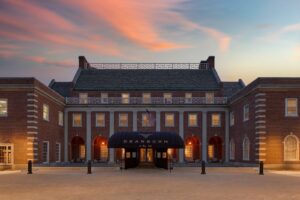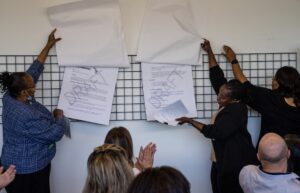On October 13, Detroitisit, the Consulate General of the Kingdom of the Netherlands in Chicago, and Dutch Design Week will bring together architects, urban planners and design experts for the second annual Sustainable Urban Design Summit focused on sharing smart design and innovations built to transform our cities into sustainable urban centers.
To this end, a global challenge that is swiftly becoming more critical around urban design is water resiliency. As climate change continues to alter our weather, the questions become; How can we best build water resiliency into future infrastructures so that communities and the economy will thrive? How can businesses decrease the amount of stormwater run-off into rivers? Can we retrofit existing infrastructure that’s antiquated and that doesn’t work for today’s environment?
Both situated on waterfronts, Detroit and the Netherlands share many parallels as we consider these questions and work toward design solutions.
This topic will be dissected during the 11:05 am panel; Waterfronts, Water Resiliency, & Mobilizing Corporate, Private & Local Government to Design for Climate Change
With representation from the public and private sectors including the Michigan Department of Environment, Great Lakes and Energy (EGLE), Urban Rivers, and One Architecture and Urbanism, the panel promises to deliver vibrant discussion and shared case studies from several varied points of view.
Panel member Zachery Damato co-founder of Urban Rivers certainly brings a unique perspective to the discussion. Damato and his constituents at Urban Rivers are converting a one mile stretch of the Chicago River into a floating eco-park called the Wild Mile.
The Wild Mile represents an organic “big idea” that came from coffee shop discussions and is becoming a reality on the riverfront of a major U.S. city – no small task.
Taking something on like this as a private entity isn’t for the faint of heart,
says panel moderator Britany Affolter-Caine, Executive Director of Michigan’s University Research Corridor.
“Implementing anything along a waterway involves multiple layers of oversight and buy-in from the city, state, the DNR, the Coastguard, the list goes on.”
“We have worked through layers and layers of bureaucratic roadblocks to bring this project to fruition,” says Damato.
“We need to think about how to reduce barriers like regulation and put sustainable design front and center to solve these problems. How do we get everyone on the same page as to what a solution looks like – faster? These will be the kinds of questions I will be posing for discussion,” says Affolter-Caine.
Also sitting on the panel is Matthijs Bouw, Founding Partner of One Architecture whose focus is planning waterfronts and changes in dynamic cities. This perspective will provide deep texture and context from a planning and innovative design standpoint.
Attendees can expect to experience immersive conversations around these topics:
- How does the climate crises drive change in cities?
- Looking at resilience as the primary lens to understand complex systems.
- Stormwater management
- For the success of such impactful projects, how can public / private collaborations thrive in terms of building resilient public spaces?
- What financial, technical, and organizational issues can be addressed through the design process for successful urban planning?
- Inclusion building and aligning a thread of activity for everyone
We look forward to exploring joint solutions in development, urban planning, and architecture together, which will combine Dutch expertise in design, circularity, and infrastructure with Detroit’s capacity for invention and reinvention,
said Dutch Consul General Bart Twaalfhoven. “Cultivating strong relationships between Dutch and American partners, both existing and new, will help us build a sustainable future.”
To experience the panel virtually and attend the panel in person at the Madison Building at 11:05 am on October 13, register here.
As always, be sure to subscribe to our newsletter for regular updates on all things Detroit.






















